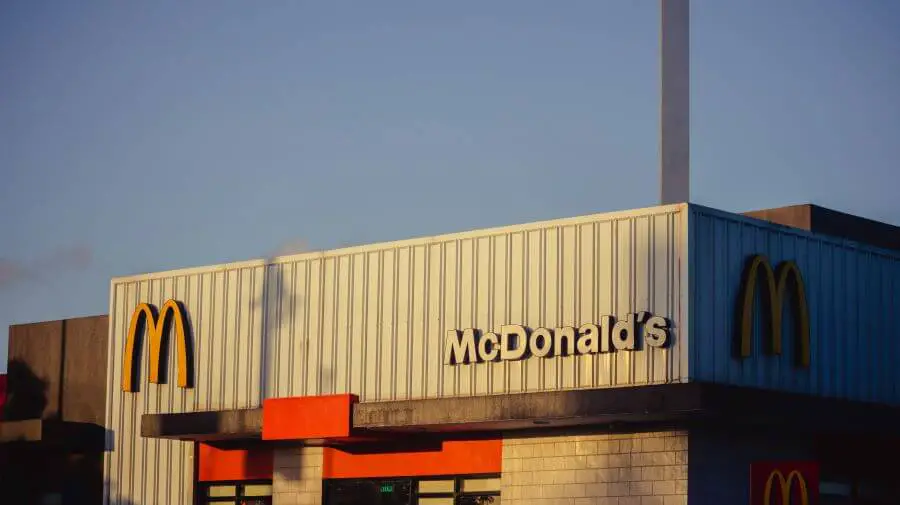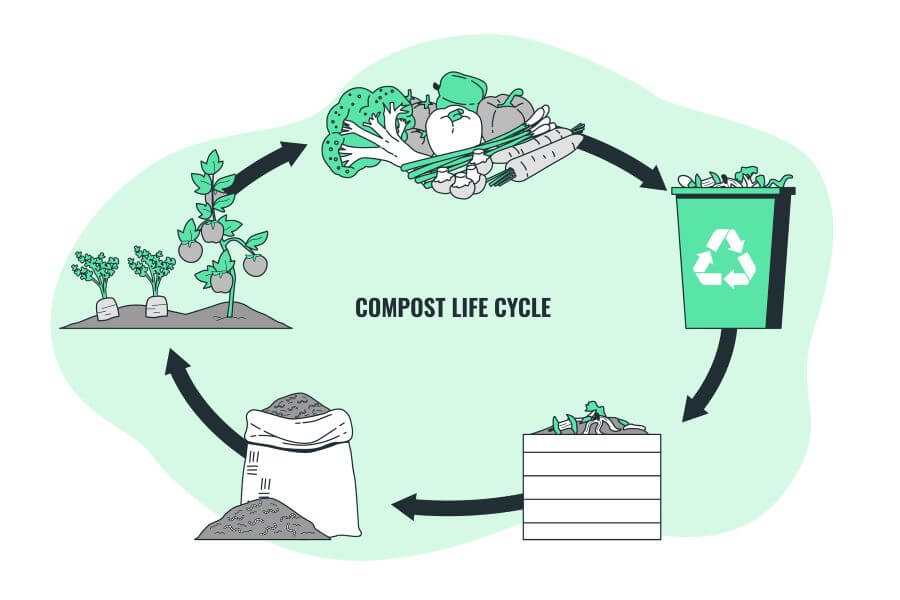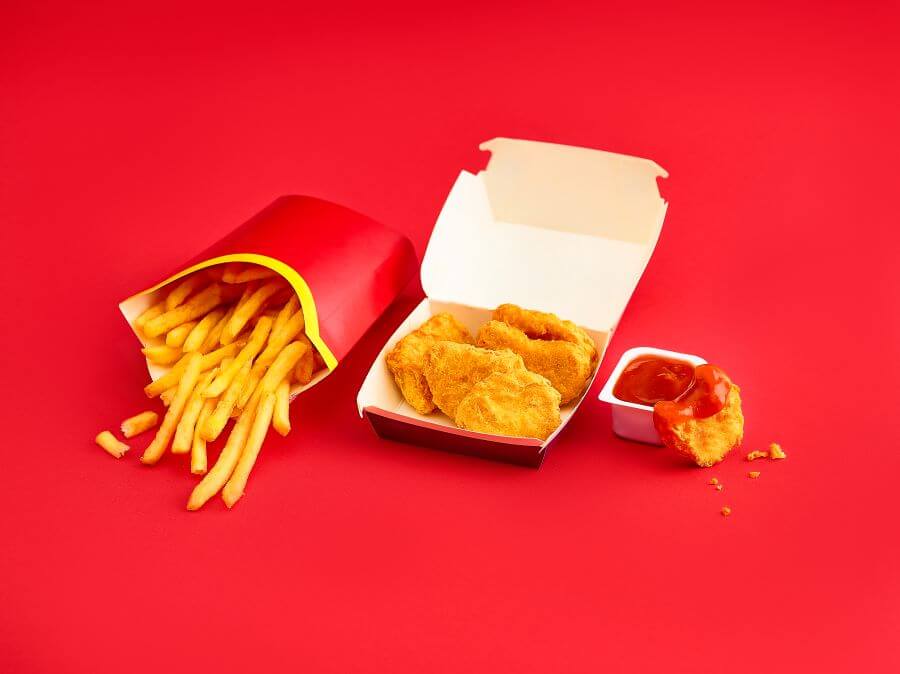In an age where sustainability and environmental responsibility are at the forefront of many consumers’ minds, many questions arise about the impact of our daily choices.
One such question that frequently arises revolves around the compostability of fast-food packaging, specifically from McDonald’s, one of the world’s largest fast-food chains.

Are those familiar boxes that house our Big Macs and Chicken McNuggets suitable for composting?
This comprehensive guide will delve into this question, offering an in-depth exploration of composting, the composition of McDonald’s boxes, and the broader context of McDonald’s sustainability efforts.
Composting: The Basics and Its Importance
Composting is a natural process where organic materials decompose under controlled conditions.
Microorganisms, including bacteria, fungi, and other tiny creatures, consume the organic matter, breaking it down into a nutrient-rich soil amendment known as compost.
Composting is a vital part of the waste management hierarchy, which prioritizes waste reduction, recycling, composting, and, only then, disposal. Composting brings numerous environmental benefits.
It reduces the amount of waste sent to landfills, decreases greenhouse gas emissions (since composted organic manure doesn’t generate methane as it would in a landfill), and provides a nutrient-dense, natural alternative to chemical fertilizers for gardens and farms.
Composting can be done at home in a backyard compost bin or a worm composting system. In contrast, industrial-scale composting facilities handle larger volumes of organic waste from businesses and municipalities, including food scraps and yard waste.

The Intricacies of Composting
However, not all organic materials are appropriate for composting; some can even be detrimental. For instance, meat, dairy products, and oily foods are generally not recommended for backyard composting because they can attract pests and produce foul odors.
Certain types of yard waste, like weeds with seeds or diseased plants, should also be avoided as they can spread disease or unwanted plants when the compost is used.
Composting also requires a balance of “green” materials (rich in nitrogen, like fruit and vegetable scraps and coffee grounds) and “brown” materials (rich in carbon, like leaves, straw, and cardboard).
This balance is crucial for maintaining healthy microbial activity and efficient decomposition. Too much nitrogen can lead to a smelly compost pile, while too much carbon can slow decomposition.
McDonald’s Boxes: What Are They Made Of?
At first glance, McDonald’s boxes might seem like a prime candidate for compost’s “brown” component. After all, they’re made of cardboard, which comes from trees – a renewable resource. However, in reality, these boxes are more complex.
McDonald’s boxes are likely coated with a thin layer of plastic or another synthetic material to withstand the grease and moisture from their food.
This coating effectively repels water and oil, preventing the box from becoming soggy and disintegrating. But it also means the boxes are less than 100% paper.
Additionally, McDonald’s boxes are printed with colorful logos and text. The inks used for this printing can contain heavy metals and other pollutants, which could harm the environment and human health if they enter the soil through compost.
Can McDonald’s Boxes Be Composted? An In-Depth Look
Given the likely presence of synthetic coatings and potentially harmful inks, composting McDonald’s boxes may not be advisable.
These materials won’t break down in a compost pile and could introduce contaminants that are harmful to the beneficial microbes that drive the composting process, not to mention your garden soil and plants.
Moreover, the leftover food residue commonly found on McDonald’s boxes presents another challenge. While compost piles break down organic material, the oils and fats in fast food residue can create a greasy layer that’s not conducive to composting.
Large amounts of such residue could also attract unwanted pests to your compost pile.
McDonald’s and Sustainability: Steps Towards Change
It’s important to note that McDonald’s has taken significant steps towards sustainability in recent years.
The company has committed to sustainably sourcing all its food and packaging, reducing greenhouse gas emissions, and recycling guest packaging in restaurants by 2025.
That being said, recycling is not the same as composting, and a commitment to recycling doesn’t necessarily mean McDonald’s boxes will become compostable.
Furthermore, recycling processes vary significantly by location and often depend on local infrastructure and regulations.
Some areas may not have the facilities to recycle coated cardboard or food-soiled paper, which could mean that McDonald’s boxes end up in landfill anyway.

What Can We Do? Alternatives and Solutions
What alternatives exist if composting McDonald’s boxes isn’t a viable option? Recycling is possible in areas where facilities can handle this type of waste. However, the most sustainable option might be to reduce the use of disposable packaging altogether.
One way to do this is to dine at the restaurant, thus avoiding needing a take-out box. If you order take-out, consider bringing your reusable container for leftovers.
Another way to reduce packaging waste is to support businesses prioritizing sustainability in their packaging choices. Many restaurants and food service companies now offer compostable or reusable packaging options.
By patronizing these businesses, consumers can help drive demand for more sustainable practices across the industry.
Conclusion: Towards a More Sustainable Future
While it may be disappointing to learn that McDonald’s boxes are not ideal for composting, this realization underscores the complexities of our modern waste stream and the challenges of transitioning to a more circular economy.
It also highlights the importance of ongoing education and advocacy to drive corporate responsibility and sustainable consumer behaviors. In the meantime, we can contribute to a more sustainable future in our ways.
Whether composting our kitchen scraps, recycling whenever possible, reducing our consumption of disposable products, or advocating for sustainable practices in our favorite businesses, every action counts. And who knows?
With the rapid advancements in sustainable materials and packaging technologies, we may soon see a day when all fast-food packaging, including McDonald’s boxes, can be responsibly composted or reused.
Until then, let’s continue to do our part to make a difference and inspire change.





